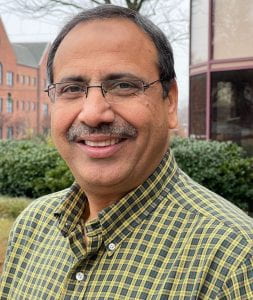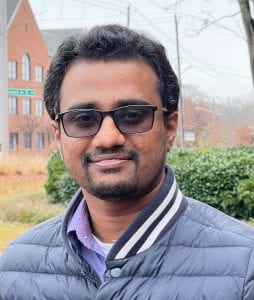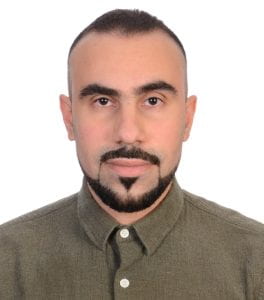Research Staff

Jamshad Mahmood
Jamshad has over 23 years of experience in corrosion testing and manufacturing of recovery boilers and pressure vessels. He is a Mechanical/Research Engineer with expertise in the design, manufacturing of industrial equipments and conducting lab corrosion testing e.g., slow strain rate corrosion testing, electrochemical corrosion testing, high-temperature aqueous corrosion testing and molten salts corrosion testing. He manages the corrosion laboratories and chemical inventories for the corrosion group.
Graduate Students

Ganesh Bhaskaran (Ph.D. Student)
Ganesh’s research is focused on understanding the impact of processing sequence, alloy composition, and joining methods on grain boundary microstructure, as well as structural forms of corrosion in sheet gauge 7xxx alloys. Ganesh’s work uses a combination of characterization techniques and material tests such as scanning transmission electron microscopy (STEM), Scanning Vibrating Electrode Technique, Stress Corrosion Cracking tests to determine the impact of microstructure on the corrosion mechanism. The effect of testing environment and constituent particles on localized corrosion resistance is also part of his research.

Krishna Moorthi Sankar (Ph.D. Student)
Krishna’s work involves studying the behavior of structural materials in molten fluoride salts for application in next generation Molten Salt Nuclear Reactors (MSRs) and Concentrated Solar Power Plants (CSPs). It focuses on understanding the effect of impurities and redox potential of the molten fluoride salt on the corrosion and mechanical properties of structural materials. Krishna’s work uses a combination of chemical and electrochemical testing and various characterization methods to understand the effect of salt conditions and additives on the behavior of structural materials in the molten fluoride salt, as well as methods to prevent corrosion of these materials in this salt.

Rupesh Rajendran (Ph.D. Student)
Rupesh’s research is on understanding the effects of post-processing treatments and microstructure on corrosion, stress corrosion cracking, and mechanical behavior of additively manufactured (AM) 7xxx series aluminum alloys for aerospace applications. Using advanced electrochemical techniques and characterization, his goal is to complement high throughput development of AM alloys and processing conditions by correlating corrosion and stress corrosion cracking behavior with the microstructural features.

Sonja Brankovic (Ph.D. Student)
Sonja’s research focuses on investigating the high-temperature thermophysical and molten chloride salt corrosion behavior of structural materials (Ni- and Fe-based alloys and alumina-silica bricks) for concentrating solar power (CSP) and molten salt reactor (MSR) applications. With the combination of temperature-dependent, experimental thermal diffusivity and specific heat data and molten salt immersion testing, she will screen a variety of alloys and refractory bricks for use in next-generation (700°C+) CSP systems. All of this experimental data will be incorporated into a transient heat transfer model of a salt storage tank to simulate the materials’ performance.

Abdullah Alzubail (Ph.D. Student)
Abdullah’s research is on using thiosulfate solution to simulate a hydrogen sulfide (H2S) environment. Steel materials may be vulnerable to various forms of H2S degradation, including corrosion, stress corrosion cracking (SCC), and hydrogen embrittlement, depending on the testing environment and conditions. In-situ formation of H2S in water provides a safe alternative to studying these mechanisms and reduces the risk associated with handling toxic H2S gas. The objective of this study is to assess the impact of the H2S generated from the thiosulfate solution on the microstructure of various grades of steel alloys.

Yousef Aldossary (M.S. Student)
Yousef’s research is based on understanding the elevated temperature behavior of carbon steels with micro-alloying additions for oil and gas applications. He uses thermo gravimetric analysis (TGA) along with XRD and SEM to understand the degradation behavior of steels in harsh environments likes sulphides.
